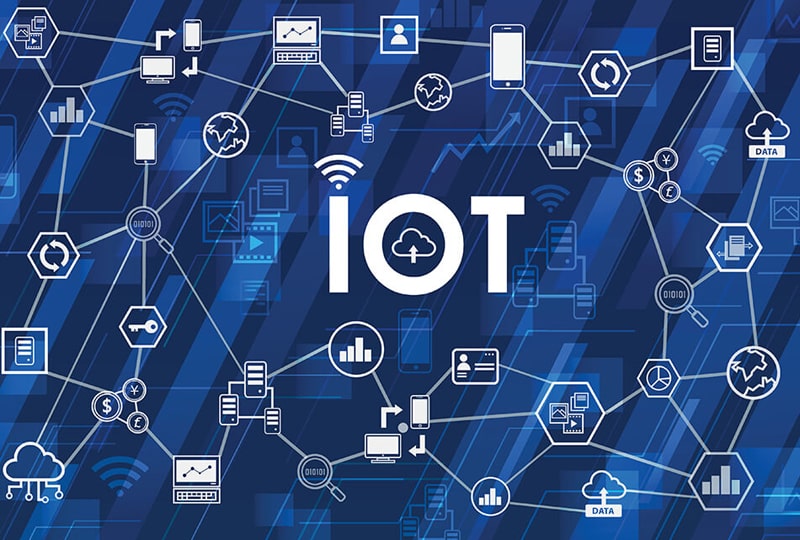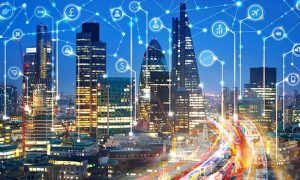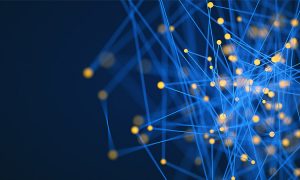

Introduction: In 2024, the Internet of Things (IoT) continues to revolutionize various industries, enhancing connectivity and automation through the integration of artificial intelligence (AI). From smart homes to industrial applications, IoT devices equipped with AI capabilities are driving efficiency, productivity, and convenience. This article explores the top 10 IoT devices examples with AI in 2024, showcasing their innovative features and applications across different sectors.
1. Smart Thermostats: Smart thermostats, such as the Nest Learning Thermostat by Google, leverage AI algorithms to analyze user preferences and environmental data, optimizing energy usage and comfort levels. By learning users’ behavior patterns and adjusting temperature settings accordingly, these devices help reduce energy consumption and lower utility bills. Additionally, they can integrate with other smart home devices, such as lighting and blinds, to create a fully automated and energy-efficient environment. According to a report by Forbes, “Smart thermostats equipped with AI intelligence have the potential to revolutionize home energy management, providing users with greater control and efficiency.”
2. Intelligent Security Cameras: Companies like Arlo Technologies offer intelligent security cameras that utilize AI-powered features such as facial recognition and object detection to enhance surveillance capabilities. These cameras can distinguish between humans, animals, and vehicles, providing more accurate alerts and reducing false alarms. With advanced analytics, users can receive real-time notifications and monitor their premises remotely. Some advanced models even offer two-way audio communication and cloud storage for video recordings. As noted by TechCrunch, “Intelligent security cameras equipped with AI technology offer enhanced security and peace of mind, making them essential IoT devices for home and business security systems.”
3. Connected Healthcare Devices: IoT devices in the healthcare sector, such as wearable fitness trackers like Fitbit, incorporate AI algorithms to analyze biometric data and provide personalized health insights. These devices track various metrics such as heart rate, sleep patterns, and physical activity, helping users monitor their health and wellness goals. With AI-driven analytics, healthcare professionals can also gain valuable insights into patient health trends and intervene proactively. Moreover, some devices offer remote monitoring capabilities, allowing patients to share real-time data with their healthcare providers for better management of chronic conditions. According to Medical News Today, “Connected healthcare devices enabled with AI technology empower individuals to take control of their health and enable remote monitoring, revolutionizing preventive care and chronic disease management.”
4. Smart Home Assistants: Leading the market in smart home assistants, devices like Amazon Echo and Google Home utilize AI-powered virtual assistants, such as Alexa and Google Assistant, to perform various tasks and control connected devices through voice commands. These assistants can answer questions, play music, set reminders, and automate smart home devices, offering users a seamless and intuitive experience. With continuous updates and improvements in natural language processing, smart home assistants are becoming indispensable IoT devices in modern households. Some advanced models even offer additional features such as video calling, smart home routines, and compatibility with third-party apps and services. As highlighted by CNET, “Smart home assistants integrated with AI capabilities are transforming the way we interact with technology, offering convenience, entertainment, and efficiency.”
5. Autonomous Vehicles: In the automotive industry, AI-powered IoT devices are driving the development of autonomous vehicles, with companies like Tesla leading the way in self-driving technology. These vehicles utilize sensors, cameras, and AI algorithms to perceive their surroundings, navigate traffic, and make real-time driving decisions. With advancements in AI, autonomous vehicles promise to revolutionize transportation, offering safer, more efficient, and convenient mobility solutions. According to Reuters, “Autonomous vehicles equipped with AI technology have the potential to reduce accidents, congestion, and emissions, ushering in a new era of mobility.”
6. Industrial IoT Sensors: In industrial settings, IoT sensors embedded with AI capabilities enable predictive maintenance, asset tracking, and process optimization. Companies like Siemens offer industrial IoT solutions that utilize AI algorithms to analyze sensor data and detect anomalies or potential failures in machinery. By predicting maintenance needs and optimizing production processes, these IoT devices help improve operational efficiency and reduce downtime. Moreover, they can integrate with existing industrial systems, such as SCADA and MES, to provide real-time insights and facilitate data-driven decision-making. As reported by Forbes, “Industrial IoT sensors equipped with AI-driven analytics empower manufacturers to achieve cost savings, improve reliability, and enhance overall productivity.”
7. Smart Agriculture Solutions: In agriculture, IoT devices with AI capabilities are transforming traditional farming practices, enabling precision agriculture and sustainable food production. Devices like John Deere Precision Planting technology utilize AI algorithms to analyze soil data, weather patterns, and crop conditions, optimizing planting and harvesting processes. By providing real-time insights and recommendations, these IoT devices help farmers make data-driven decisions and maximize crop yields. Additionally, they can integrate with precision farming equipment such as GPS-guided tractors and drones to automate field operations and reduce input costs. According to AgFunderNews, “Smart agriculture solutions powered by AI and IoT technologies offer farmers unprecedented control over their operations, increasing efficiency, and sustainability.”
8. Energy Management Systems: IoT devices integrated with AI algorithms are revolutionizing energy management and sustainability efforts in buildings and facilities. Smart energy meters, such as those offered by Schneider Electric, monitor energy consumption in real-time and adjust usage based on demand and pricing signals. By optimizing energy usage and identifying areas for improvement, these devices help reduce costs and carbon emissions. Moreover, they can integrate with building automation systems to optimize HVAC, lighting, and other energy-consuming systems for maximum efficiency. As noted by GreenBiz, “Energy management systems enabled by IoT and AI technologies play a crucial role in advancing energy efficiency and sustainability goals, empowering organizations to make smarter energy decisions.”
9. Smart Retail Solutions: In the retail sector, IoT devices with AI capabilities are enhancing the customer shopping experience and optimizing store operations. Solutions like Amazon Go‘s cashierless stores utilize AI-powered cameras and sensors to track customer movements and purchases, enabling frictionless shopping experiences. These IoT devices also provide retailers with valuable insights into customer behavior and preferences, enabling targeted marketing and inventory management strategies. Moreover, they can integrate with customer loyalty programs and mobile apps to offer personalized promotions and discounts in real-time. According to TechRadar, “Smart retail solutions leveraging IoT and AI technologies are reshaping the future of shopping, offering convenience, personalization, and efficiency.”
10. Environmental Monitoring Devices: IoT devices equipped with AI algorithms are increasingly being used for environmental monitoring and conservation efforts. Devices like Birdi‘s air quality monitors analyze pollutants and allergens in real-time, providing users with insights into air quality levels and potential health risks. By collecting and analyzing environmental data, these devices help individuals and communities make informed decisions to improve air quality and mitigate environmental impacts. Moreover, they can integrate with smart city initiatives and public health agencies to monitor pollution levels and enforce regulatory compliance. As highlighted by BBC, “Environmental monitoring devices enabled by IoT and AI technologies are essential tools for addressing environmental challenges and promoting public health.”
Conclusion: In conclusion, IoT devices integrated with AI capabilities are driving innovation and transforming various industries, from healthcare and agriculture to retail and manufacturing. By harnessing the power of data analytics and machine learning, these devices offer unprecedented insights, automation, and efficiency, revolutionizing how we interact with technology and the world around us. As advancements in IoT and AI technologies continue to evolve, we can expect to see even more groundbreaking applications and solutions that further enhance connectivity, sustainability, and quality of life.
References:
Forbes. (2024). Smart Thermostats: Transforming Home Energy Management. Retrieved from Forbes
TechCrunch. (2024). Intelligent Security Cameras: Enhancing Surveillance with AI. Retrieved from TechCrunch
Medical News Today. (2024). Connected Healthcare Devices: Empowering Personalized Health. Retrieved from Medical News Today
CNET. (2024). Smart Home Assistants: Revolutionizing Home Automation. Retrieved from CNET
Reuters. (2024). Autonomous Vehicles: Shaping the Future of Mobility. Retrieved from Reuters
Forbes. (2024). Industrial IoT Sensors: Driving Efficiency in Manufacturing. Retrieved from Forbes
AgFunderNews. (2024). Smart Agriculture Solutions: Innovating Farming Practices. Retrieved from AgFunderNews
GreenBiz. (2024). Energy Management Systems: Advancing Sustainability in Buildings. Retrieved from GreenBiz
TechRadar. (2024). Smart Retail Solutions: Redefining the Shopping Experience. Retrieved from TechRadar
BBC. (2024). Environmental Monitoring Devices: Promoting Public Health. Retrieved from BBC















